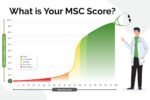
A superior pre-med school provides a well-defined trajectory to medical school, ensuring students are primed for success.
If you’re nearing the end of high school and want to be in one of the best pre-med programs in the country (but aren’t interested in going Ivy League), I’ve created just the guide for you. My team and I work with thousands of pre-meds every year to ace their med school applications, and our recommendations come from nearly two decades of admissions committee experience.
We used these standards to create our list of the best non-Ivy League pre-med schools:
- Strong Science Programs: A top pre-med school should offer rigorous science courses to provide a solid foundation for medical studies.
- Research Opportunities: Access to research opportunities can be crucial for pre-med students to gain practical experience and build their resumes for medical school applications.
- Academic Advising: Effective pre-med advising can help students navigate their coursework, extracurricular activities, and the medical school application process.
- Clinical Experience: Opportunities for clinical exposure, such as shadowing physicians or volunteering in healthcare settings, are valuable for pre-med students to understand the medical profession. Learn more about our shadowing programs.
- Extracurricular Activities: A great pre-med school should offer a variety of clubs, organizations, and activities related to healthcare, allowing students to explore their interests and demonstrate their commitment to the field.
- Strong Faculty: Professors with expertise in the sciences and healthcare fields can provide valuable mentorship and support to pre-med students.
- High Acceptance Rates: Look for schools with a history of high medical school acceptance rates among their pre-med graduates.
- Networking Opportunities: Schools with connections to nearby medical schools or healthcare institutions can provide networking opportunities and pathways for internships or research collaborations.
- Facilities and Resources: Access to state-of-the-art laboratories, libraries, and other resources can enhance the educational experience for pre-med students.
It’s essential to evaluate pre-med programs based on your specific goals. What constitutes a great pre-med school can vary depending on individual preferences, budget, and aspirations.
Learn how we can help you ace your college application to get into the pre-med program of your choice.
Here is our list of the 25 best pre-med schools that are not in the Ivy League:
1. Boston College
Location: Chestnut Hill, Massachusetts
Undergrad Acceptance Rate: 17%
Average ACT Score: 34
Average SAT Score: 1482
Application Deadline: January 1st
Acceptance Rate for Undergrads/Alumni Applying to Medical School: Not available
Boston College excels in scientific exploration among the nation’s top universities. Their pre-med program provides practical support for choosing a major, organizing course sequences, accessing relevant health-related opportunities, and navigating the application procedure.
2. Johns Hopkins University
Location: Baltimore, Maryland
Undergrad Acceptance Rate: Not available
Average ACT Score: 34-35
Average SAT Score: 1520-1560
Application Deadline: January 2nd
Acceptance Rate for Undergrads/Alumni Applying to Medical School: 80%
Johns Hopkins University ensures that its pre-health students develop the essential skills to address pressing health challenges. If you aspire to a healthcare career, you have the flexibility to integrate their pre-health advising program with any major.
3. Vanderbilt University
Location: Nashville, Tennessee
Undergrad Acceptance Rate: 4.2%
Average ACT Score: 30-34
Average SAT Score: 1360-1530
Application Deadline: January 15th
Acceptance Rate for Undergrads/Alumni Applying to Medical School: 74%
Vanderbilt University excels in equipping students for a successful journey to a top medical school. Their emphasis on interdisciplinary education and close proximity to Nashville’s primary medical hub create an environment conducive to achieving success in the medical field.
4. Rice University
Location: Houston, Texas
Undergrad Acceptance Rate:7%
Average ACT Score: 35
Average SAT Score: 1530
Application Deadline: January 4th
Acceptance Rate for Undergrads/Alumni Applying to Medical School: Not available
Rice University holds a position within the top 20 universities in the nation, as recognized by U.S. News & World Report. Although specific statistics haven’t been released, the university is renowned for its notably high acceptance rate of its graduates into medical schools.
5. Boston University
Location: Boston, Massachusetts
Undergrad Acceptance Rate: 14%
Average ACT Score: 34
Average SAT Score: 1491
Application Deadline: January 4th
Acceptance Rate for Undergrads/Alumni Applying to Medical School: 85% (of students who maintain a 3.5 GPA or higher)
Boston University offers robust support for your undergraduate journey toward your desired healthcare profession. Alumni have gone on to establish prosperous careers in various fields, including dentistry, medicine, physician assisting, nursing, public health, pharmacy, and beyond.
6. Stanford University
Location: Palo Alto, California
Undergrad Acceptance Rate: 3.68%
Average ACT Score: Not available
Average SAT Score: Not available
Application Deadline: January 5th
Acceptance Rate for Undergrads/Alumni Applying to Medical School: Not available
Stanford offers a multitude of clubs, research initiatives, and volunteer chances that hold significant appeal to college admissions during the medical school application process. Their mentors are dedicated to assisting you in fulfilling your pre-med requirements.
While it’s a very prestigious school and frequently ranks higher than Harvard on “best-of” schools for pre-meds, Stanford is not in the Ivy League.
7. Northwestern University
Location: Evanston, Illinois
Undergrad Acceptance Rate: 9.3%
Average ACT Score: 33-35
Average SAT Score: 1460-1540
Application Deadline: January 3rd
Acceptance Rate for Undergrads/Alumni Applying to Medical School: Not available
Northwestern pre-medical courses are recognized for their difficulty, primarily due to the grading curves. The university’s competitive environment motivates students to strive for their utmost potential, encouraging diligent study habits and involvement in student organizations.
8. Washington University in St. Louis
Location: St. Louis, Missouri
Undergrad Acceptance Rate: 12%
Average ACT Score: 33-34
Average SAT Score: 1500-1540
Application Deadline: January 3rd
Acceptance Rate for Undergrads/Alumni Applying to Medical School: 76%
The pre-health community at the Washington University in St. Louis provides valuable guidance and resources to assist you in charting your journey to medical school. At WashU, you can kickstart your path by exploring research and volunteer prospects as early as your first year.
9. Georgetown University
Location: Washington, DC
Undergrad Acceptance Rate: Not available
Average ACT Score: Not available
Average SAT Score: Not available
Application Deadline: January 10th
Acceptance Rate for Undergrads/Alumni Applying to Medical School: 65% (2 years post-graduation) and 97% (3 years post-graduation)
Georgetown University boasts one of the leading pre-medical programs in the United States, with a rich history of successful medical alumni. Aspiring med school students are encouraged to consider essential courses like Biology, Organic Chemistry, and Statistics.
10. Emory University
Location: Atlanta, Georgia
Undergrad Acceptance Rate: 10.2%
Average ACT Score: 33-35
Average SAT Score: 720-770 (Evidence-based reading and writing, “ERW”), 750-790 (Math)
Application Deadline: January 1st
Acceptance Rate for Undergrads/Alumni Applying to Medical School: 77% (of students who have a GPA of 3.7 or higher)
Emory University offers a highly sought-after pre-medical program. By actively engaging with available resources and utilizing their pre-med center, you’ll find ample opportunities to secure admission to medical school following your graduation.
11. Case Western
Location: Cleveland, Ohio
Undergrad Acceptance Rate: Not available
Average ACT Score: 32-35
Average SAT Score: 1420-1520
Application Deadline: January 15th
Acceptance Rate for Undergrads/Alumni Applying to Medical School: 78% (2 years post-graduation)
Case Western is within walking distance to nationally ranked hospitals, making it a hub for advanced research and clinical care opportunities. Many local healthcare professionals welcome undergraduate participants to join their research teams and train for med school.
12. New York University
Location: New York City, New York
Undergrad Acceptance Rate: 8%
Average ACT Score: 31-35
Average SAT Score: 1350 to 1530
Application Deadline: January 5th
Acceptance Rate for Undergrads/Alumni Applying to Medical School: 90% (of graduates with a 3.6 GPA, who score in the 88th percentile on the MCAT)
NYU is renowned for its challenging academic programs, diverse healthcare opportunities in New York City, and abundant research prospects. It’s an excellent option for pre-medical students seeking dedicated pre-health advisors who are ready to support them at every step.
13. Tufts University
Location: Medford, Massachusetts
Undergrad Acceptance Rate: 9.7%
Average ACT Score: 33-35
Average SAT Score: 720-770 (ERW), 750-790 (Math)
Application Deadline: January 4th
Acceptance Rate for Undergrads/Alumni Applying to Medical School: 93%
Tufts University has an outstanding pre-med program with direct access to the resources and intern opportunities at Tufts University School of Medicine.
14. The University of North Carolina at Chapel Hill
Location: Chapel Hill, North Carolina
Undergrad Acceptance Rate: 16.8%
Average ACT Score: 28-33
Average SAT Score: 1350-1510
Application Deadline: January 15th
Acceptance Rate for Undergrads/Alumni Applying to Medical School: Not available
UNC Chapel Hill has a combination of academic excellence, research opportunities, advising support, and access to healthcare resources that makes it an attractive choice for students pursuing a pre-medical education. 500-600 UNC Chapel Hill graduates apply to medical school every year.
15. University of Chicago
Location: Chicago, Illinois
Undergrad Acceptance Rate: 5.4%
Average ACT Score: 20-36
Average SAT Score: 1020-1600
Application Deadline: January 2nd
Acceptance Rate for Undergrads/Alumni Applying to Medical School: 80% (of students with a 3.6 GPA or higher)
UChicago has a strong reputation for producing outstanding pre-medical students who excel on the MCAT and often secure admission to medical schools, whether in Chicago or elsewhere.
16. University of Notre Dame
Location: Notre Dame, Indiana
Undergrad Acceptance Rate: 12%
Average ACT Score: Not available
Average SAT Score: Not available
Application Deadline: Jan. 1st
Acceptance Rate for Undergrads/Alumni Applying to Medical School: 84%
The University of Notre Dame proudly highlights an impressive statistic: 84% of their pre-med graduates gain admission to medical school, regardless of their chosen major.
17. University of Southern California
Location: Los Angeles, California
Undergrad Acceptance Rate: 9.9%
Average ACT Score: 30-34
Average SAT Score: 1360-1510
Application Deadline: January 15th
Acceptance Rate for Undergrads/Alumni Applying to Medical School: Not available
The University of Southern California has a pre-med track that provides a competitive academic environment with ample opportunities for peer collaboration, allowing students to prepare for the rigors of medical school.
18. University of Michigan
Location: Ann Arbor, MI
Undergrad Acceptance Rate: 26.3%
Average ACT Score: 32-34
Average SAT Score: 1440-1540
Application Deadline: February 1st
Acceptance Rate for Undergrads/Alumni Applying to Medical School: Above national average (exact rate not available)
The University of Michigan emphasizes academics as the foundation of a pre-med student’s professional development and success as a future med school student.
19. Duke University
Location: Durham, North Carolina
Undergrad Acceptance Rate: 6.3%
Average ACT Score: 34-36
Average SAT Score: 1510-1570
Application Deadline: January 2nd
Acceptance Rate for Undergrads/Alumni Applying to Medical School: 2.4%
Duke provides demanding pre-med coursework, so effective schedule planning is essential. With the proper class selection and extracurricular involvement, you’ll have a strong opportunity to secure acceptance to medical school.
20. Wake Forest University
Location: Winston-Salem, North Carolina
Undergrad Acceptance Rate: 20%
Average ACT Score: 33
Average SAT Score: 1480
Application Deadline: January 1st
Acceptance Rate for Undergrads/Alumni Applying to Medical School: Not available
Wake Forest University offers a valuable opportunity for individuals aiming to improve their skills and prospects in the medical field. Participants in this program can enhance their study abilities while building connections with fellow students aspiring to pursue careers in medicine.
21. University of California, Berkeley
Location: Berkeley, California
Undergrad Acceptance Rate: 16.4%
Average ACT Score: 30-35
Average SAT Score: 660-750 (ERW), 680-790 (Math)
Application Deadline: November 30th
Acceptance Rate for Undergrads/Alumni Applying to Medical School: 43.9%
UC Berkeley stands as an appealing choice for aspiring pre-med students, boasting the 6th-ranked Biology department and the 3rd-ranked Chemistry department in America. It serves as a prominent source of successful candidates for prestigious medical schools.
22. George Washington University
Location: Washington, DC
Undergrad Acceptance Rate: 50%
Average ACT Score: 30-33
Average SAT Score: 1300-1450
Application Deadline: January 5th
Acceptance Rate for Undergrads/Alumni Applying to Medical School: Not available
George Washington University is an outstanding choice for pre-med students, as it offers a close integration between its undergraduate and medical school programs. Many professors from the medical school also teach undergraduate courses, providing students with exceptional guidance.
23. California Institute of Technology
Location: Pasadena, California
Undergrad Acceptance Rate: Not available
Average ACT Score: Not available
Average SAT Score: Not available
Application Deadline: November 1st
Acceptance Rate for Undergrads/Alumni Applying to Medical School: Not available
The California Institute of Technology is a top choice for pre-med education, primarily due to its outstanding STEM programs. CalTech offers challenging coursework in biology, physics, and chemistry, equipping students for success on the MCAT and in medical school.
24. Carnegie Mellon
Location: Pittsburgh, Pennsylvania
Undergrad Acceptance Rate: Not available
Average ACT Score: Not available
Average SAT Score: Not available
Application Deadline: January 3rd
Acceptance Rate for Undergrads/Alumni Applying to Medical School: Not available
At Carnegie Mellon, you’ll experience top-notch preparation for essential science courses and personalized mentorship. Explore your path to health professions with comprehensive opportunities like shadowing and engagement with the esteemed Doctors of Carnegie Society.
Advantages of a Non-Ivy League School
While Ivy League institutions such as Harvard University, Brown, Columbia University, Cornell University, Princeton, and Yale are renowned, you can have an exceptional pre-med experience and medical school admissions without them.
What school has the highest pre-med acceptance rate? George Washington University has the highest published pre-med acceptance rate at 50%.
What is the average MCAT score for a school with a pre-med program? The average MCAT score for a school with a pre-med program is between 500-518.
There are several compelling reasons to consider a non-Ivy League school for pre-med:
- Diverse Opportunities: Non-Ivy League schools often offer a wide range of extracurricular activities and research opportunities. You may have more chances to get involved in meaningful healthcare-related experiences, which can be valuable for your medical school application.
- Class Size: Smaller class sizes at non-Ivy League schools can lead to more personalized attention from professors. This can be particularly advantageous in science and pre-med courses, where individualized instruction can be beneficial.
- Lower Cost: Non-Ivy League schools tend to be more affordable, and this can significantly reduce your student debt burden. Medical school itself is expensive, so saving on undergraduate tuition can be financially wise.
- Strong Pre-Med Programs: Many non-Ivy League schools have well-established and respected pre-med programs that offer rigorous coursework and advising to prepare students for medical school.
- Less Competition: The intense competition at Ivy League schools can be stressful. Non-Ivy League schools may offer a less competitive environment, allowing you to focus on your studies and extracurricular activities without excessive pressure.
- Location: Consider where you want to practice medicine in the future. Attending a non-Ivy League school in a region where you plan to work as a physician can provide valuable connections and networking opportunities.
- Quality of Life: Non-Ivy League schools often (though not always) have a more relaxed atmosphere, which can contribute to a better quality of life during your undergraduate years. A balanced and enjoyable college experience is essential for your well-being.
- Focus on Teaching: Some non-Ivy League schools prioritize teaching over research, meaning professors are more dedicated to educating students. This can result in a higher-quality learning experience.
Is a 3.5 GPA good for premed? 3.5 is an okay GPA for pre-med students. However, the average GPA of medical school matriculants (accepted and attend med school) is 3.75 overall and 3.68 for science courses. This average increases substantially for Ivy League schools.
Ultimately, the choice of where to pursue your pre-med education should align with your individual goals, preferences, and circumstances. Non-Ivy League schools can provide an excellent foundation for a successful medical career.
We’re Here to Help
When it’s your time to apply to med school, MedSchoolCoach’s admissions advising team is ready to help you every step of the way. Learn more about our shadowing programs and get tips on creating an MCAT study schedule.
Speak with a member of our enrollment team who can help you ace your college applications for your chosen pre-med program.

Renee Marinelli, MD
Dr. Marinelli has practiced family medicine, served on the University of California Admissions Committee, and has helped hundreds of students get into medical school. She spearheads a team of physician advisors who guide MedSchoolCoach students.






